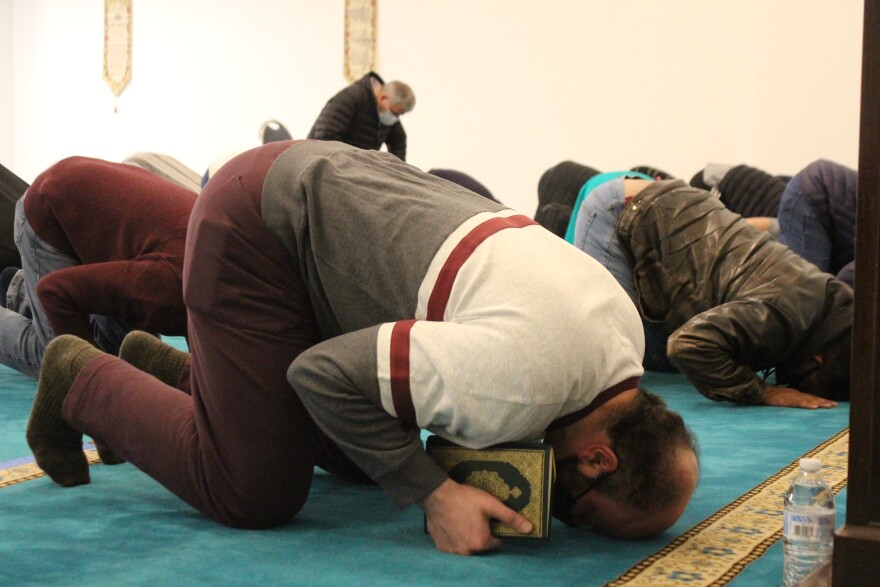The crescent moon appeared in the night sky on Monday, kicking off the holy month of Ramadan for Muslims around the world, including in Alaska.
At Alaska’s largest mosque, the Islamic Community Center in South Anchorage, about 50 of the faithful gathered for Tuesday evening prayers. Blue painter’s tape on the turquoise carpet marked safe social distances between men, who diligently wore masks during prayers and prostrations. Women entered from a different door and stayed in a separate area on the balcony throughout the service.
While in past years Ramadan services centered around the breaking of the fast with a meal, this year evening prayers are the main event, due to concerns about COVID-19 spread.
“Last year, we didn't even have the prayer, there was no activity at all. Everybody did it at home. So this year, at least, we are doing that night prayer together,” said Dr. Youssef Barbour, a spokesman for the center.
This year's service started at 9 p.m. with a recitation of general prayers covering a variety of topics.
“Basically for guidance for forgiveness, for removal of debt, of sorrow, of sadness, all these kinds of emotions, the bad emotion to kind of be removed and lifted, be lifted, and just replaced by good emotions,” said Barbour.
This year, he said, the prayer for healing and recovery was especially poignant after a pandemic that hit Alaska hard.
Every few minutes, congregants knelt and prostrated themselves, touching their foreheads to a floor decorated with rows of intricate arabesque. The building was completed about five years ago to serve the several thousand Muslims who live in Anchorage, according to center estimates.
After the recitation of prayers, the service turned to the recitation of the Quran, an optional addition to the nightly prayer. Barbour said having the prayer service in person helped encourage congregants to study the Quran.
“It's like peer pressure because at home you might just feel lazy, ‘I'll do it later,' until it's too late. And then you want to go to bed,” Barbour said.
The Muslim Holy Book has 30 chapters, and the mosque tries to get through a chapter each evening.
The reciter of the Quran, the Hafez, stood facing the front of the building along with the rest of the congregation.
Without a professional imam, the Hafez sometimes forgot a word or two and gets prompting from audience members following along.
The services ended around 10:15 p.m. Congregants slipped out the building to get some sleep before the next prayer at 5 a.m.
The tradition will continue for four more weeks until the celebration of breaking of the final fast, called Eid al-Fitr. During a normal year, it can draw 700 people to the mosque, Barbour said.
This year, he expects the end of Ramadan to be smaller, but said being able to gather in person is still a lot better than celebrating from home.



